Pediatric physical therapists help kids to be kids and achieve the highest level of independence possible.
By Meghan Owens, PT, DPT, Director of Pediatric Services at CORA Physical Therapy
When you hear the words “physical therapy,” most people picture athletes on the road to recovery from an injury or think of a short stint of rehab following surgery. Unless you are a pediatric physical therapist or a parent of a child with special needs, most people do not immediately picture children working on sitting, crawling, or walking when they hear “physical therapy.” Read on to discover what pediatric physical therapy is all about and what our CORAkids program can do for you!
The Academy of Pediatric Physical Therapy describes the role of the pediatric physical therapist as one in which the therapists “…work in collaboration with children and their families to provide services aimed at promoting a child’s ability to function independently and participate actively in home, school, and community environments.” They go on to state that “Pediatric physical therapy promotes independence, increases participation, facilitates motor development and function, improves strength and endurance, enhances learning opportunities, and eases challenges with daily care giving.” This sounds great, but what does it mean?
Pediatric physical therapists work in a variety of settings, which may include the child’s home or school. They may also work in an in-patient hospital or an outpatient clinic. Regardless of the setting, pediatric physical therapists work with everyone involved in the child’s care to determine strategies to best support the child and caregivers. The ultimate goal is helping the child to achieve the highest level of independence possible so they can participate in activities with their families, peers, and community. This looks different for every child – for some children, it will mean learning how to drive their wheelchair and putting weight through their legs to assist a caregiver who is helping them get into and out of their wheelchair, and for others, it will mean walking, running, and playing.
Pediatric Physical Therapists Help Kids to be Kids
By seeing children in their home or school, pediatric physical therapists can help structure their day-to-day environments to promote playing with toys, exploration, and interacting with family members and classmates. If a child does not yet have the strength, balance, or endurance to sit, stand, or walk independently, pediatric physical therapists can recommend adaptive equipment such as activity chairs, feeder seats, standers, gait trainers, walkers, and wheelchairs that will provide the child with the extra support they require to be able to explore their environment, interact with friends and family at eye level, sit on the floor together at circle time, and maintain an upright standing position to participate in games.
Our CORAkids program is devoted to helping patients from birth to age 21 thrive. We provide services in-home for children from birth to three who are enrolled in their state’s Early Intervention or Birth-to-Three program, services for school-aged children in a number of school districts with which CORA contracts, and in many of our outpatient clinics. While the focus of therapy is different in each of the settings, our overarching goals remain the same – increasing independence and participation.
Early Intervention or Birth-to-Three
Each state has its own program devoted to identifying children under the age of three who are struggling to meet developmental milestones. Once identified, children receive a screening to determine eligibility for the program. They may then receive assessments to further explore the family’s concerns and therapy may be recommended. The focus of therapy is teaching the family strategies to use during their daily routines to help their children progress with their developmental milestones using only toys and materials the family has available in their home.
School-Based Therapy
“The Individuals with Disabilities Education Act (IDEA) is a federal law, with state education agency oversight, that supports the provision of public education for all children—regardless of the nature or severity of their disability. Part B of IDEA mandates the education of children, 3-21 years old, who have a disability that interferes with their educational performance and their ability to benefit from their educational program.” Children receive a referral for evaluation and following the evaluation, their eligibility is determined by a team that includes the school staff, family, and therapist(s). The focus of physical therapy in the school is to increase a child’s independence with school-related tasks, their ability to participate in educational activities, and their ability to access their school environment.
Outpatient Therapy
If a parent or guardian has concerns regarding their child’s development or if they have a known developmental, neurologic, or genetic disorder, they may request a referral for physical therapy from their physician, and in some states, they may make the referral to physical therapy themselves. The focus of outpatient therapy is to increase the child’s independence and participation within their home and community. Our outpatient therapists collaborate with the child’s school-based therapist(s), other outpatient therapists (speech and occupational therapy), physicians, and anyone else involved in the child’s care to ensure the child is getting the most out of their therapy sessions.
Telehealth
Many of the children we treat have decreased immune systems, making it unsafe for them to travel to a clinic during cold and flu season or during a pandemic. We offer telehealth evaluations and ongoing therapy appointments in order to meet their needs.
Aquatic Therapy
There are many reasons why aquatic therapy may be beneficial for a child, including helping reduce high muscle tone or increase low muscle tone, decreasing the amount of weight they need to support, and challenging strength and balance, to name a few. Many of our clinics offer aquatic therapy.
Is Your Child Ready to Shine Bright?
CORAkids is our signature pediatrics program designed specifically for our youngest patients proven to increase positive outcomes for the children and families we gratefully serve. Why? Because at CORA we believe all children deserve the chance to shine. To grow. And to flourish.
We know that it’s not a matter of making adult-sized treatments “smaller.” It’s about true customization perfectly suited to help kids thrive. Locate a CORA clinic near you today to connect with an expert physical, occupational or speech language therapist tomorrow.

